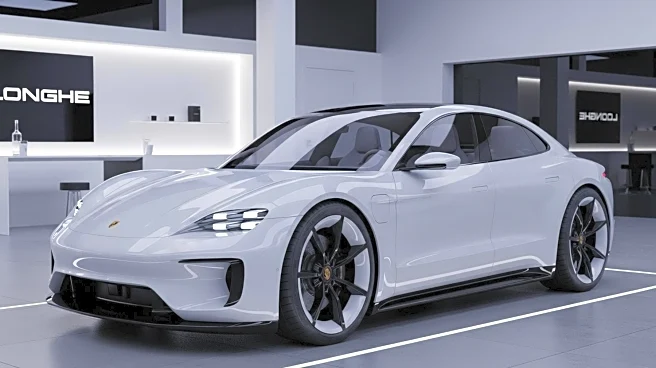What's Happening?
Porsche has decided to delay the launch of its flagship electric SUV, initially planned to sit above the Cayenne, due to unexpected market challenges. The German automaker will instead introduce the model with a combustion engine and plug-in hybrid powertrain. This strategic shift comes as Porsche faces slower-than-expected growth in sales of its all-electric models. The new SUV, codenamed K1, will be Porsche's first three-row crossover, aiming to capture a new market segment. Despite the delay in the electric version, Porsche continues to develop other electric models, including the Cayenne EV, while maintaining its commitment to combustion engines in certain models like the 718 two-door.
Why It's Important?
This strategic realignment by Porsche highlights the complexities of transitioning to an all-electric vehicle portfolio. The decision reflects broader industry challenges, including U.S. import tariffs, a decline in the Chinese luxury market, and a slowdown in electric mobility adoption. Porsche's move to maintain combustion engines alongside electric models indicates a cautious approach to balancing innovation with market realities. The company plans significant financial investments to navigate these challenges, which could impact its competitive positioning and influence industry trends in electric vehicle adoption.
What's Next?
Porsche's reorganization suggests a continued focus on hybrid and combustion engine models in the near term, with plans to invest heavily in adapting to market conditions. The company is expected to spend $3.65 billion this financial year, with further investments anticipated. Stakeholders, including consumers and industry competitors, will closely watch how Porsche's strategy unfolds, particularly in the context of evolving global automotive trends and regulatory pressures.










